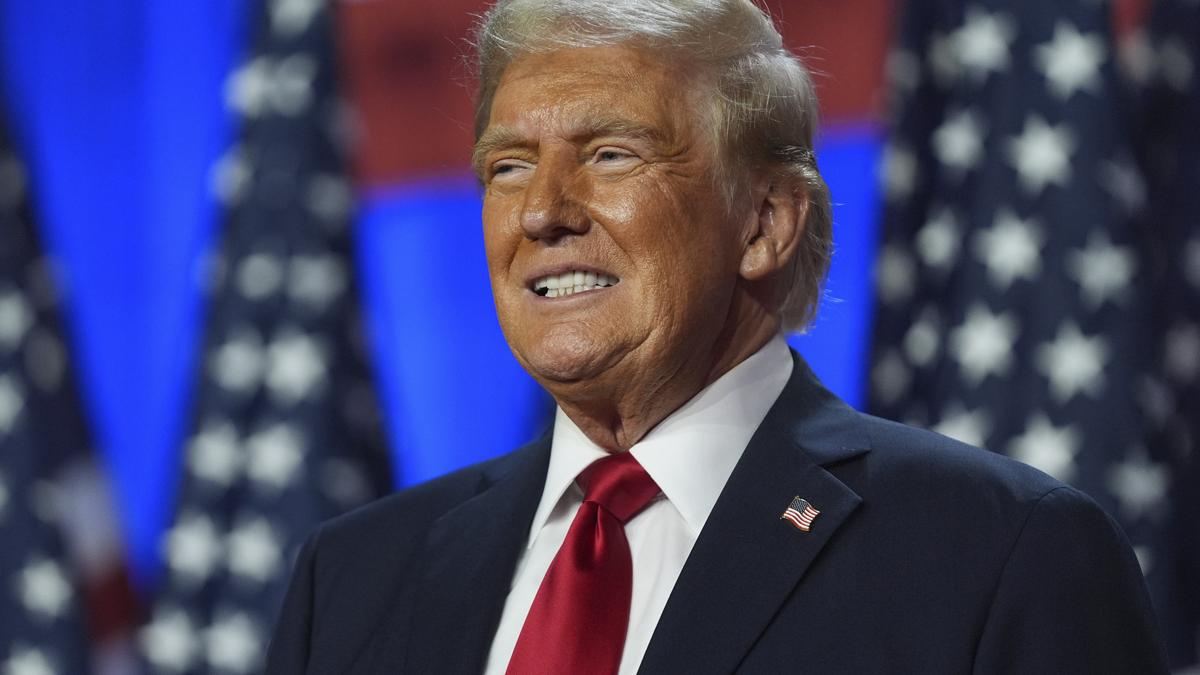Donald Trump’s transition team invites Google, Meta, TikTok, and other tech giants to combat online drug sales: Report

President-elect Donald Trump’s transition team is taking significant steps to combat the online sale of drugs by engaging major technology companies. According to reports, representatives from Google, Microsoft, Meta Platforms, Snap, and TikTok have been invited to a meeting in mid-December to discuss collaborative strategies for addressing this issue. This initiative highlights the ongoing concern over the role of digital platforms in facilitating illegal drug transactions, particularly those involving fentanyl, a synthetic opioid responsible for countless fatalities in the United States.
The meeting aims to hear directly from the tech giants about their perspectives, priorities, and any obstacles they face in tackling the problem. This reflects a growing emphasis on public-private partnerships to address the complexities of combating online drug sales.
Donald Trump’s transition team invited Google, Meta, and others to tackle online drug sales.
The transition team has reached out to several leading tech companies, including:
- Google: A significant search engine and advertising platform.
- Microsoft: Renowned for its enterprise software and cloud services.
- Meta platforms: The parent company of Facebook and Instagram have faced scrutiny over drug-related content.
- Snap: The developer of Snapchat, a platform popular among younger demographics.
- TikTok is a social media platform that has become prominent for short video content.
The companies are expected to provide input on their current policies and challenges in identifying and mitigating the use of their platforms for illegal drug activities.
Donald Trump administration’s focus on fentanyl crisis
Donald Trump has consistently voiced concerns about the growing fentanyl crisis in the U.S., linking it to cross-border trafficking. Fentanyl, a highly potent synthetic opioid, has been a leading cause of drug overdose deaths in the country. The president-elect has proposed several measures to address the issue:
- Increased pressure on Mexico and Canada: Trump has pledged to impose steep tariffs on goods from these countries if they fail to take more decisive action against fentanyl trafficking.
- Awareness campaigns: In November, Trump announced plans for a large-scale advertising campaign to educate Americans on the dangers of fentanyl use.
- Enhanced enforcement: The administration is expected to prioritize stricter enforcement of laws targeting the production and distribution of fentanyl.
Tech industry under scrutiny for online drug sales
The meeting comes amidst increased scrutiny of the role digital platforms play in facilitating drug sales. Several high-profile cases have highlighted the issue:
- Meta’s role investigated: In March, The Wall Street Journal reported that U.S. prosecutors were examining Meta’s involvement in drug sales on Facebook and Instagram and whether the company profited from such activities.
- eBay settlement: In January, eBay agreed to pay $59 million and implement improved compliance measures following allegations by the U.S. Department of Justice that it failed to prevent criminals from purchasing devices for making counterfeit drugs, including those laced with fentanyl.
Challenges ahead
The collaboration between the government and tech companies is crucial but not without challenges.
- Content moderation: Identifying drug-related content among billions of platform posts remains a significant obstacle.
- Algorithm accountability: ensuring algorithms do not inadvertently promote harmful content.
- Privacy concerns: Balancing user privacy with the need to monitor illegal activities.
Tech companies will likely emphasise the complexity of addressing these challenges, including resource limitations and the need for better tools to detect illicit activities.
Outlook and expectations
This upcoming meeting signals a proactive step by the Trump administration to engage tech leaders in the fight against online drug sales. It highlights the critical need for cross-sector collaboration in addressing a complex and deeply ingrained issue. While the tech companies and government may have differing priorities, this dialogue marks a potential turning point in efforts to curb the misuse of digital platforms for illegal drug activities.
As the fentanyl crisis continues to claim lives, the success of such initiatives could set a precedent for future collaborations in combating online crime.




